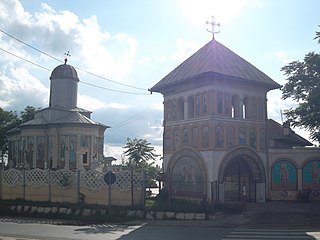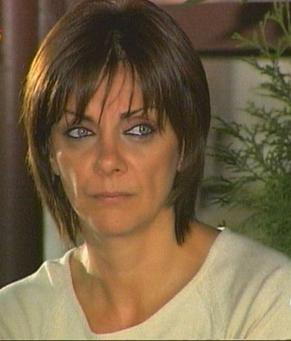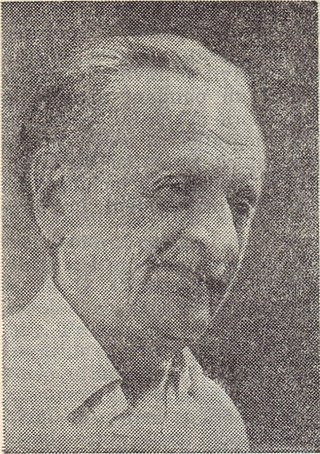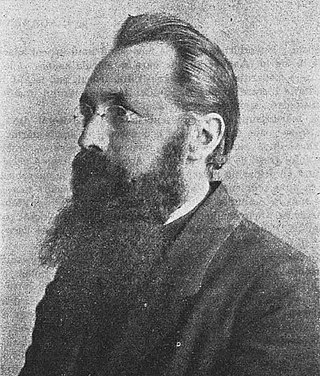List of Romanian plays:
List of Romanian plays:
Romanian literature is literature written by Romanian authors, although the term may also be used to refer to all literature written in the Romanian language or by any authors native to Romania.

Jilava is a commune in Ilfov county, Muntenia, Romania, near Bucharest. It is composed of a single village, Jilava.

Radu Beligan was a Romanian actor, director, and essayist, with an activity of over 70 years in theatre, film, television, and radio. On 15 December 2013, confirmed by Guinness World Records, the actor received the title of "The oldest active theatre actor" on the planet. He was elected honorary member of the Romanian Academy in 2004.

Șerban Vodă Cemetery is the largest and most famous cemetery in Bucharest, Romania.

The National Theatre Bucharest is one of the national theatres of Romania, located in the capital city of Bucharest.

Carmen Tanase is a Romanian actress. After graduating The Drama and Film Institute from Bucharest, in 1984, she joined the company of "Vasile Alecsandri" National Theatre in Iaşi and then moved back to the capital city of Romania. Since 1990, she is a member of the Odeon Theatre company from Bucharest. As a student, she played in Dostoevsky's The Possessed, in John Steinbeck's Sweet Thursday, in Butterflies, Butterflies by the Italian playwright Aldo Nicolaj etc. Following the fall of the Romanian communist regime, in 1989, she also involved herself in the independent artistic movements that flourished after these events. She toured the world with Radu Duda, the two of them playing in A Report to an Academy, the adaptation of a short story by Franz Kafka, directed by Cristina Iovita.

Șerban Cioculescu was a Romanian literary critic, literary historian and columnist, who held teaching positions in Romanian literature at the University of Iași and the University of Bucharest, as well as membership of the Romanian Academy and chairmanship of its Library. Often described as one of the most representative Romanian critics of the interwar period, he took part in the cultural debates of the age, and, as a left-wing sympathizer who supported secularism, was involved in extended polemics with the traditionalist, far right and nationalist press venues. From early on in his career, Cioculescu was also noted for his selective approach to literary modernism and the avant-garde, preferring to place his cultural references with Neoclassicism.

Mitică Popescu was a Romanian actor.

Ion Agârbiceanu was an Austro-Hungarian-born Romanian writer, journalist, politician, theologian and Greek-Catholic priest. Born among the Romanian peasant class of Transylvania, he was originally an Orthodox, but chose to embrace Eastern Catholicism. Assisted by the Catholic congregation of Blaj, he graduated from Budapest University, after which he was ordained. Agârbiceanu was initially assigned to a parish in the Apuseni Mountains, which form the backdrop to much of his fiction. Before 1910, Agârbiceanu had achieved literary fame in both Transylvania and the Kingdom of Romania, affiliating with Astra cultural society in 1912; his work was disputed between the rival schools of Sămănătorul and Poporanism. After a debut in poetry, he became a highly prolific author of novels, novellas, and other forms of prose, being rated as "Chekhovian" or "Tolstoyan" for his talents in describing the discreet suffering of common folk.

Adolf Edmund George de Herz, commonly shortened to A. de Herz, also rendered as Hertz and Herț, was a Romanian playwright and literary journalist, also active as a poet, short story author, and stage actor. He was the scion of an upper-class assimilated Jewish family, with its roots in Austria-Hungary. His grandfather, Adolf Sr, was a controversial banker and venture capitalist, while his father, Edgar von Herz, was noted as a translator of Romanian literature. Adolf had a privileged childhood and debuted as a poet while still in high school, producing the lyrics to a hit romance. In his early work for the stage, Herz was a traditionalist inspired by Alexandru Davila and the Sămănătorul school, but later veered toward neoclassical literature and aestheticism. His "salon comedies", staged by the National Theater Bucharest, borrowed from various authors, including Roberto Bracco, Henri Lavedan, and Haralamb Lecca, peaking in popularity in 1913, with Păianjenul. By the start of World War I, Herz was also a writer of revues.
The Romanian Writers' Society was a professional association based in Bucharest, Romania, that aided the country's writers and promoted their interests. Founded in 1909, it operated for forty years before the early communist regime transformed it into the Writers' Union of Romania.
Tată de duminică is a 1975 Romanian film directed by Mihai Constantinescu and starring Amza Pellea, Radu Beligan, Gina Patrichi, Olga Delia Mateescu and Mircea Constantinescu Govora.
Alexandru Dabija is a stage director and actor in Romanian theater and film.

The Romanian pavilion houses Romania's national representation during the Venice Biennale arts festivals.